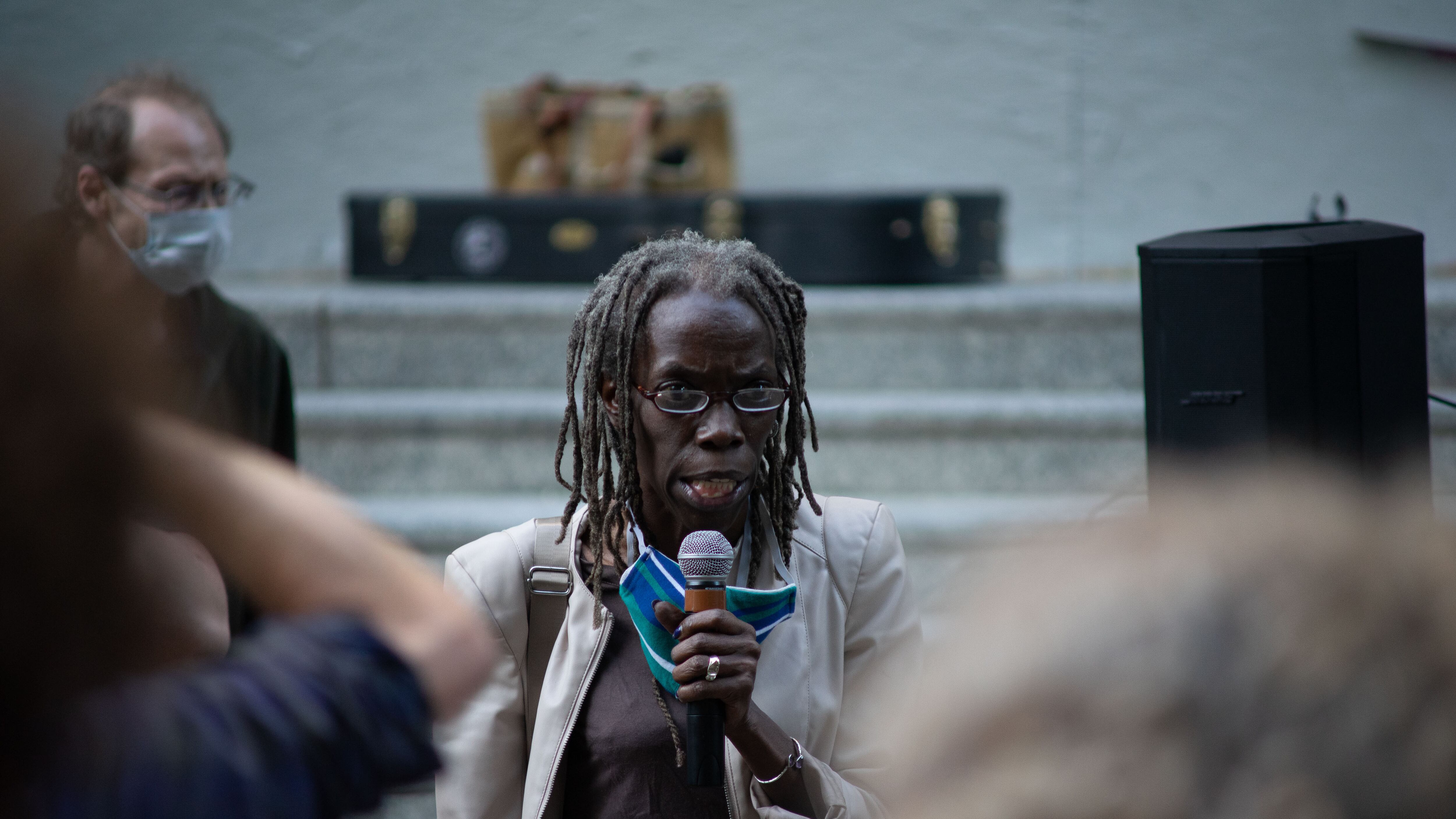In a unanimous vote early this evening, the Portland City Council's four sometimes fractious members agreed to refer to the November ballot an amendment to the city charter creating a new police oversight agency.
That referral is the work of Commissioner Jo Ann Hardesty, who characterized the new entity as the result of her 30 years of advocating for stronger oversight of the Portland Police Bureau.
Hardesty says the new entity will be more independent, have broader and stronger investigative authority, and come with a far larger budget—up to 5% of the Police Bureau's budget. That amount is multiples of the budget currently allocated to the Independent Police Review agency, which is part of the City Auditor's Office.
"This is by no means a new conversation," Hardesty said. "What's changed is, there's now community momentum and the political will to get us where we are today."
Hardesty's proposal attracted dozens of citizens who testified of their support for the measure.
One speaker who dissented, City Auditor Mary Hull Caballero, took the unusual step yesterday of holding a press conference—the first's she's ever held—to air her objections to the proposed new agency.
In testimony today, Hull Caballero warned that Hardesty's measure had been pulled together hastily without proper vetting and would not change current barriers to accountability. Those barriers, she said, include state laws that impede the release of documents, and collective bargaining agreements that restrict what watchdogs can accomplish.
Hull Cabellero cautioned proponents of the referral against "magical thinking."
Today's vote marked further evidence that the friction that flared up last week between Mayor Ted Wheeler and Hardesty, his closest City Council ally, is cooling.
Hardesty demanded July 18 that Wheeler rein in the Portland Police Bureau or turn it over to her. Soon after, Wheeler stopped speaking to Hardesty. He then rebuked her after she falsely levied—and quickly retracted—a claim that Portland police were setting fires at protests.
The two began communicating again over the past weekend and issued a joint statement July 27 seeking dialogue with federal law enforcement occupiers.
Portland Police Association president Daryl Turner proved far less forgiving than Wheeler, the police commissioner. Turner, who wants to scuttle Hardesty's plan for the new police oversight agency, issued a scathing demand July 28 for an official investigation of Hardesty's incendiary claims.
"As police officers, we are held to the highest levels of integrity," Turner wrote. "If we fail to meet those standards, we lose our jobs. Our elected officials should be held to those same standards."
Turner's opposition notwithstanding, the council agreed after a marathon session to follow Hardesty's lead.
Commissioner Chloe Eudaly, who battled with Hardesty over the appropriate level of cuts in the Police Bureau's budget, climbed on board, as did Commissioner Amanda Fritz, who did so while acknowledging the proposal, as Hull Caballero noted, contains significant risk of disappointing those clamoring for real change.
Wheeler, speaking last, was effusive in his praise of Hardesty's work but also noted the possibility that the structural barriers to change were considerable.
But he said the times demand decisive steps.
"As Commissioner Fritz said, there is a risk here," Wheeler said before voting aye. "I am willing to take that risk because this question of police accountability is driving thousands of people onto our streets each and every day."

